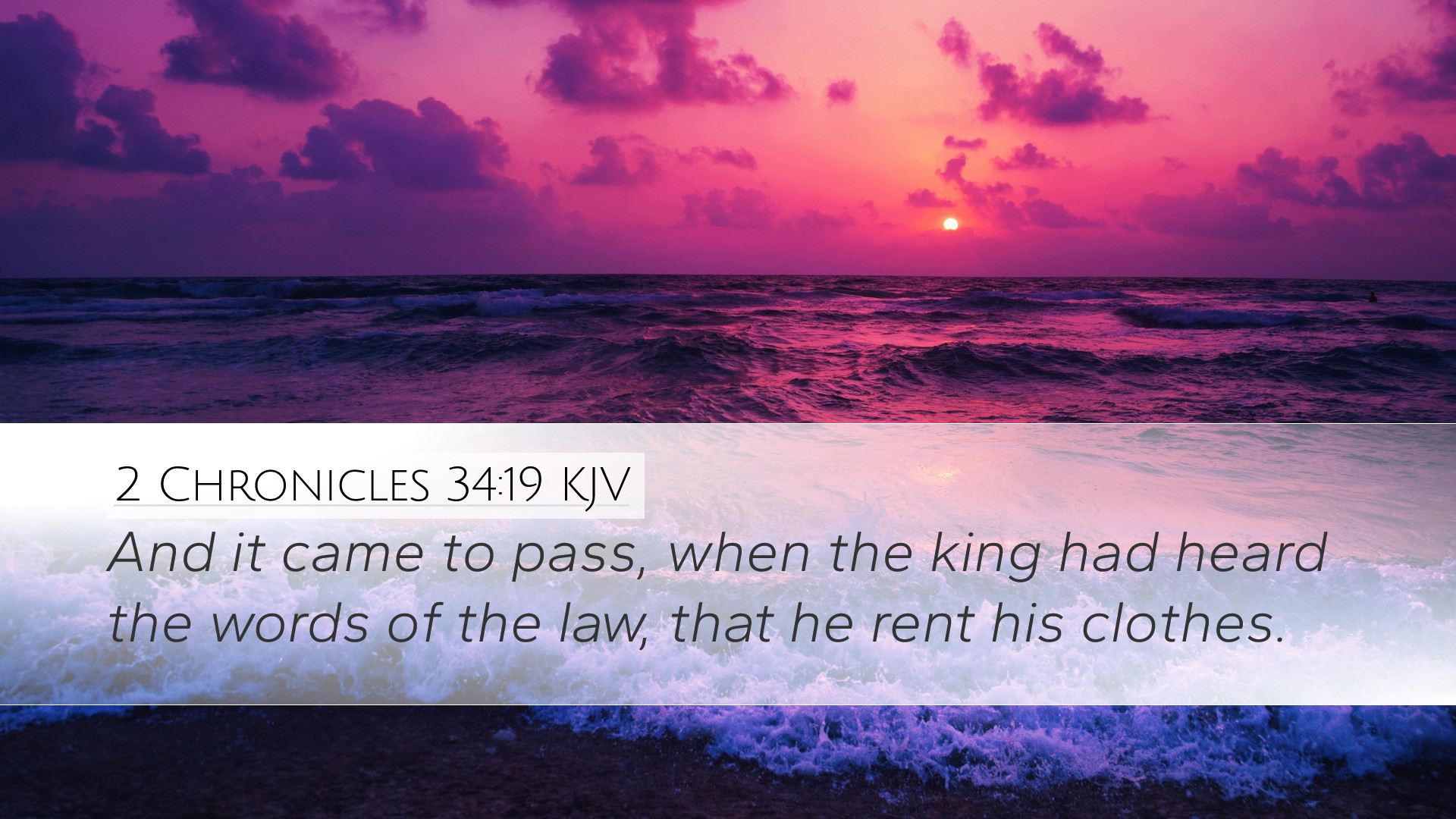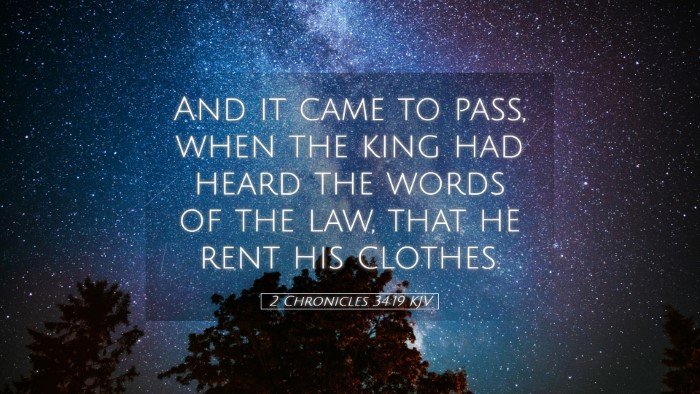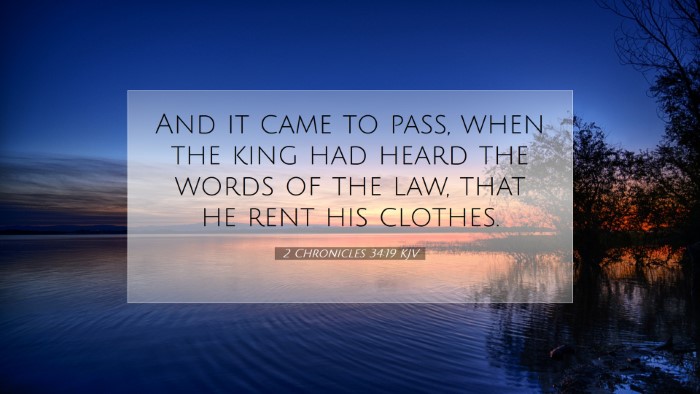Commentary on 2 Chronicles 34:19
2 Chronicles 34:19 states:
"And it came to pass, when the king had heard the words of the law, that he rent his clothes."
Introduction
This critical verse occurs in the context of King Josiah’s reign over Judah, a period of significant religious reform. The king's reaction upon hearing the Book of the Law illustrates profound themes of repentance, reverence for God’s Word, and the need for reform in worship practices.
Contextual Background
During the time of Josiah, the temple had fallen into disrepair, and the nation had strayed significantly from the commandments of God. The discovery of the Book of the Law serves as a catalyst for renewal and reform.
Insights from Public Domain Commentaries
Matthew Henry's Commentary
Matthew Henry emphasizes the deep spiritual impact that the reading of the Law had on Josiah. He notes:
- Awareness of Sin: Josiah’s act of tearing his clothes symbolizes a profound awareness of the nation’s transgressions against God. This was not merely a reaction of sorrow but reflected an acute realization of the dire situation of the people he governed.
- Repentance: Henry asserts that this moment marks the beginning of Josiah’s earnest pursuit of spiritual reformation. The king’s tearing of garments is traditionally associated with mourning, indicating that he deeply mourned the spiritual condition of Judah.
- Consequence of Ignorance: The discovery of the Law reveals how ignorance of God’s Word had led to idolatry and corruption within the nation. Henry suggests that this verse serves as a warning about the consequences of neglecting Scripture.
Albert Barnes' Notes on the Bible
Albert Barnes provides a more analytical view of the verse, noting:
- Expression of Grief: Barnes points out that kings in the ancient Near East often exhibited their grief or alarm through the act of rending garments. This action was culturally significant and demonstrated Josiah's authenticity in his spiritual state.
- Realization of Guilt: He highlights how Josiah's immediate reaction signifies recognition of guilt, both personal and collective. This encounter with the Law exposes not only Josiah's own failings but also the failures of the Israelite community.
- Call for Action: According to Barnes, the king’s grief is destined to lead to action. The tearing of clothes is the precursor to a deeper reform, whereby Josiah seeks to implement the Law into the national life of Judah.
Adam Clarke's Commentary
Adam Clarke elaborates on the historical implications of this verse by stating:
- Historical Context: Clarke points out the historical significance of Josiah’s reforms in the context of the Jewish monarchy and its covenantal obligations. The reading of the Law provided a necessary turning point.
- The King's Humanity: He commends Josiah’s sensitivity to God’s Word. Clarke asserts that true leadership reflects responsiveness to divine truths, promoting a culture of accountability and worship.
- Spiritual Revival: This moment, as Clarke indicates, represents the inception of a larger revival that would sweep through Judah, restoring both worship practices and the covenant relationship with God.
Theological Reflections
The verse encapsulates several key theological reflections relevant for contemporary believers and scholars:
- The Weight of Scripture: The profound impact of the Word of God as it awakens a sense of obligation and holiness. The encounter with the Law brought to light the spiritual apathy that had pervaded the nation.
- Repentance as a Response: Josiah’s immediate reaction encourages a model of repentance grounded in humility and recognition of divine standards. It prompts leaders and believers alike to consider the spiritual state of their congregations and communities.
- Leadership and Accountability: Josiah exemplifies what it means to lead with integrity. His response indicates an understanding that true leadership requires a commitment to God’s truth and a willingness to recognize when reform is necessary.
Conclusion
2 Chronicles 34:19 serves as a pivotal moment in the narrative of Josiah’s reforms. The verse speaks to the necessity of encountering God’s Word, the importance of a responsive heart, and the hope for renewal in the lives of individuals and communities alike. It is a passage that calls for introspection and action among leaders and believers today.


